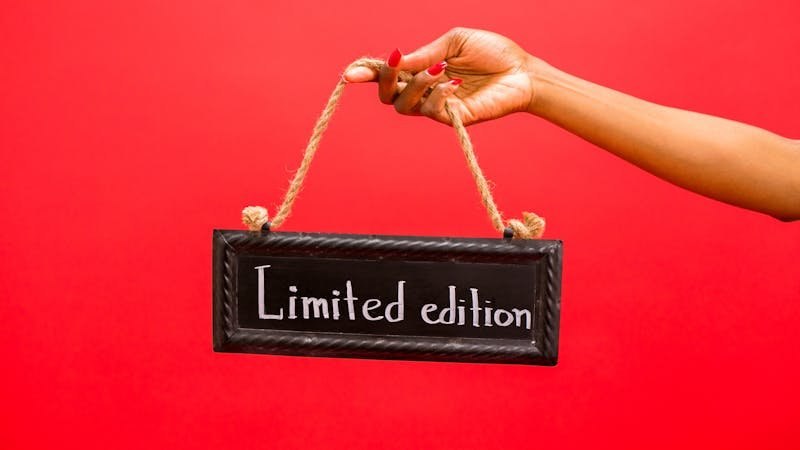
Do clothes, shoes and accessories with a limited edition label appeal to consumers?
Last month Samsung launched a limited edition sneaker line that can detect dance moves to launch different actions on the phone. Around the same time, American travel accessories brand Away teamed up with clothing brand La Ligne to launch a 20-piece limited edition collection of suitcases, accessories and clothing.
Launching limited edition offerings isn’t really a novelty in the world of clothes, shoes, accessories and fashion at large. But how wide does the appeal of a limited-edition label go?
For around three in ten consumers (31%) across 17 international markets, a limited-edition label on clothes, shoes and accessories will increase the likelihood of opting for these products.
But more than one in ten (13%) consumers are less likely to buy clothes, shoes and accessories if they are advertised as limited-edition items.
Limited edition labels have no effect on nearly a quarter of all consumers (24%) across markets, while more than a quarter of them (27%) have no interest in limited edition clothes, shoes or accessories.
Data from YouGov Surveys: Serviced also reveals that the youngest group of consumers surveyed (18-24-year-olds) are most likely across groups to say they are more likely to purchase clothes, shoes and accessories (44%) if they are marketed as limited edition buys.
Moving on to data from individual markets surveyed, we see that Indians (63%) and Indonesians (63%) tie, with consumers in these nations being the most likely across markets to react positively to limited edition advertising of clothes, shoes and accessories. Consumers in the UAE (62%) follow closely.
In Europe, Poles (32%) account for the largest proportion of consumers who are more likely to buy clothes and accessories if they are marketed as ‘limited edition’. Danes (15%) and Brits (17%) are the least likely to have the same view.
Brand and marketers in this category looking to advertise their products as limited edition buys, Danes may not be your best bet. A third of them (33%) say that labelling something as limited edition won’t impact their purchasing behaviour. Hong Kongers (31%) Swedes (29%) and Brits (29%) follow in saying they’re neither more nor less likely to opt for something labelled as limited edition.
In the US, consumers are most likely (46%) to say they are not interested in limited edition clothes, shoes and accessories - the most likely across all markets surveyed to say so. Britons follow (42%), four percentage points behind Americans, in sharing this opinion.
Explore our living data - for free
Discover more retail content here
Want to run your own research? Run a survey now
Make smarter business decisions with better intelligence. Understand exactly what your audience is thinking by leveraging our panel of 26 million+ members. Speak with us today.
Methodology: YouGov Surveys: Serviced provide quick survey results from
nationally representative or targeted audiences in multiple markets. The data is based on surveys of adults aged 18+ years in 17markets with sample sizes varying between 503 and 2004 for each market. All surveys were conducted online in March 2024. Data from each market uses a nationally representative sample apart from Mexico and India, which use urban representative samples, and Indonesia and Hong Kong, which use online representative samples. Learn more about YouGov Surveys: Serviced.
Photo by RDNE Stock project on Pexels